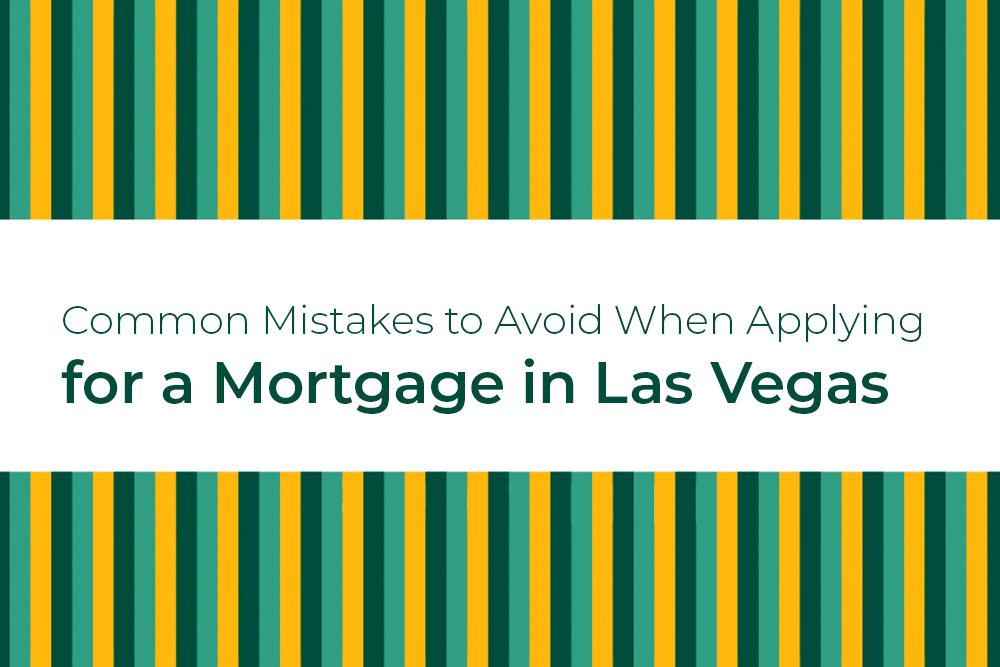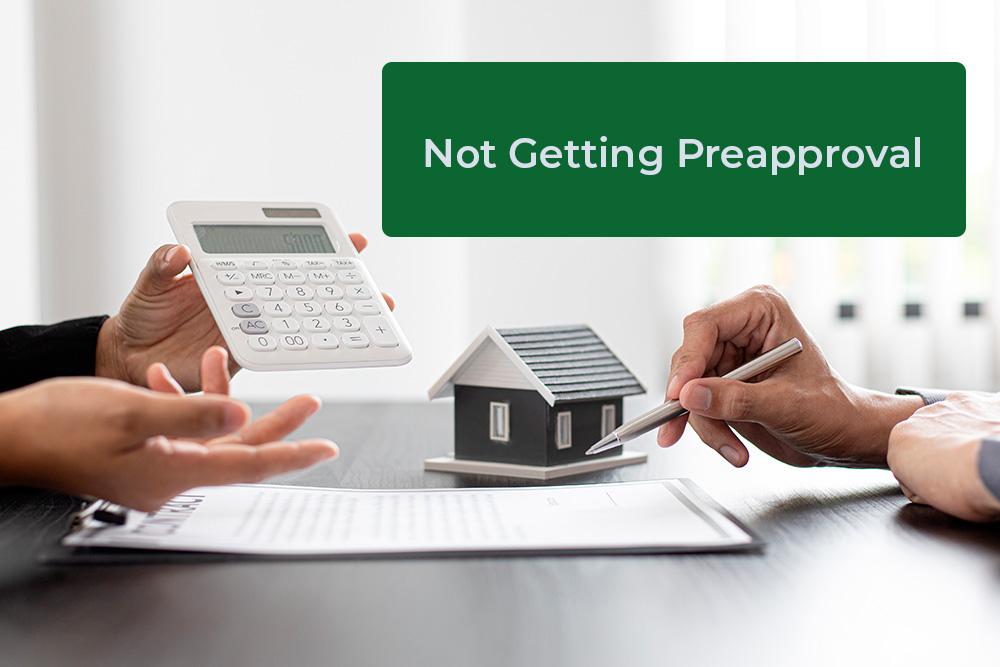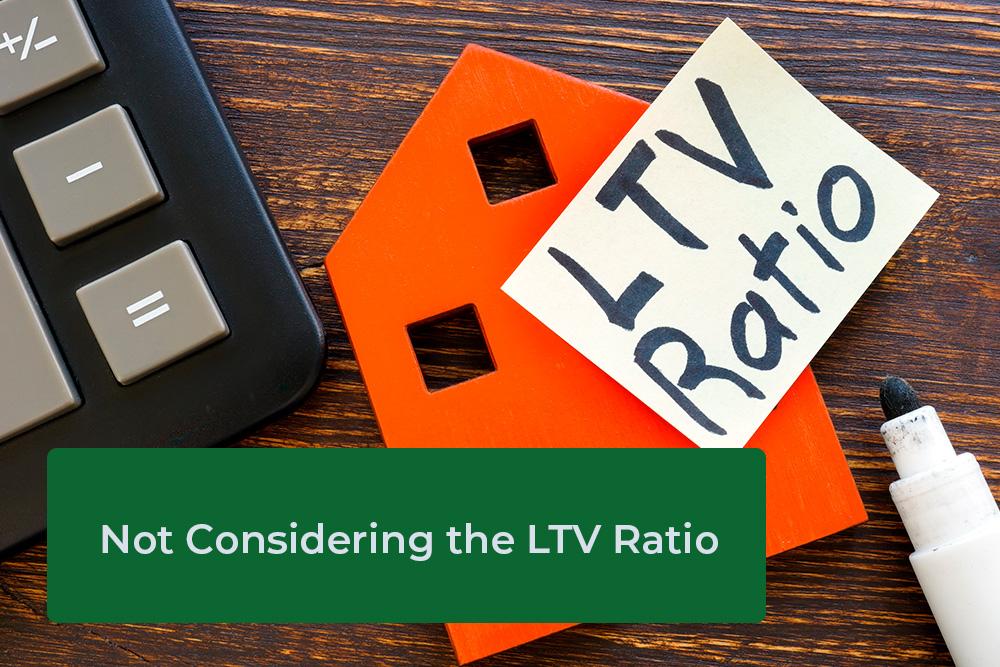
When you see a new home you want to get, it’s understandable that you are eager to purchase and move in! Although buying a new home is exciting, you’ll want to be careful when obtaining mortgages in Las Vegas so that you avoid making a mistake.
Common Mortgage Mistakes
Regardless of whether you’re a first-time or seasoned homebuyer, it is possible to make a mistake when applying for a mortgage. A mortgage company in Las Vegas can explain the most common issues people encounter when buying a home, including:
- Not getting preapproval
- Neglecting mortgage insurance
- Not shopping around
- Forgetting closing costs and fees
- Not considering the LTV ratio
- Underestimating the true cost
- Bypassing a home inspection
- Failing to check credit score
- Underestimating the buying timeline
Before you start looking for and applying for mortgages, contact Fairway Mortgage in Las Vegas so that you can avoid making the mistakes above.
Not Getting Preapproval

Some people are so eager to buy a new home that they forget to get pre-approved for mortgages in Las Vegas. Although you don’t technically have to get pre-approved for a mortgage in order to buy a home, doing so is strongly encouraged. A lender can provide prospective homeowners with a preapproval letter to help clarify an individual’s creditworthiness and ability to buy a home at a specific price point. The pre-approval letter is often considered to be the first step in buying a home, as it provides you and your home-buying team with an estimate of how much you can realistically afford to spend on a home, along with the kind of mortgage you’ll qualify for and the terms and interest rate that a mortgage lender will probably offer. Along with providing a pre-approval letter, the lender will also examine your credit history and current credit score. The mortgage lender will also ask for your assets, tax returns, debts, pay stubs, and other personal financial information, if applicable. Along with expediting the home-buying process, getting pre-approved also shows you’re serious about buying a home and ready to take the next step.
Neglecting Mortgage Insurance
Buying a new home is cost-prohibitive for some people. If you don’t think a 20% down payment is realistic, you may find a mortgage company in Las Vegas that will offer a loan with a lower down payment option. If you go that route, you may need to pay mortgage insurance each month, which protects the mortgage lender in case you default on the loan. This insurance, called private mortgage insurance, or PMI ranges from about 0.5% to 2% of your total annual loan amount.
Not Shopping Around
No two mortgages are the same, which is why shopping around for the mortgage that is a good fit for you is beneficial. If you take the time to look around for a loan, you have a better chance of finding one with a lower price point and other features that are important to you. Looking at the mortgages available means, you can save more money each month and get better interest rates based on your credit score. A mortgage broker, who works with various lenders, can help you search for optimal loan terms and interest rates.
Forgetting Closing Costs and Fees
The closing costs associated with a new home can add up quickly. If you are not aware of the added costs when you start the home-buying process, you may be in for a surprise when you get the bill! The total closing costs vary, but they typically fall within the range of 2% – 5% of the home’s purchase price. The closing costs are generally paid the day you buy your home and finalize the purchase. While they range in total value, the closing costs are comprised of the same fees regardless of how much you owe. That includes an origination fee, credit report fee, loan application fee, appraisal cost, the price of the home’s inspection, and the cost of document preparation. Other fees may be included in that total, too. Some closing costs are negotiable, but generally, the amount that you are asked to pay is firm.
Not Considering the LTV Ratio

The loan-to-value (LTV) ratio helps lenders determine the risks associated with lending you money for a loan. They assess the risk in several ways, including measuring the loan amount requested compared to the home’s current market value. Some mortgage programs are subject to LTV limits. In those instances, you may need to get private mortgage insurance if you have an LTV over 80%. Alternatively, you can make a larger down payment to reduce your LTV. Some loans, like a Federal Housing Administration (FHA) loan, require a minimum down payment of just 3.5%.
Underestimating the True Cost
When you buy a home, you may be surprised to learn that there’s more to pay for your new house than just the sticker price! A home involves many other fees that you might not be aware of right away. Other expenses associated with purchasing a home include property taxes, renovations, home repairs, and homeowners insurance. One way to work around this surprise is to set a budget and take care not to make any budgeting mistakes. That way, you will be able to keep track of housing expenses more easily, and you will have a little bit of leeway when you factor in other costs, including mortgage payments.
Bypassing a Home Inspection
Although it might be tempting to forego a home inspection to save money, that approach can backfire for new homeowners. Having a home inspected before you buy it is a wise decision that can save you a considerable amount of money over time. Additionally, if you buy a house without having it inspected beforehand, you may end up with problems such as plumbing issues, mold, termites, and other problems that will require you to delay your move-in date or find temporary housing elsewhere while you are waiting for your house to be fixed.
Failing to Check Credit Score

If you decide to buy a house, you should have your credit score checked as early as possible. Even if you are still deciding whether to buy a specific house, look at your credit to make sure you are in good standing. Your credit score determines what mortgages in Las Vegas you are eligible for. The better your credit score is, the more likely it is that you will be able to find a better deal on a loan, including lower interest rates, which can amount to substantial savings over time. If your credit score is not optimal, there are still loans that you may be eligible for, with the caveat that they might require a higher monthly interest payment or mortgage insurance payment.
Underestimating the Buying Timeline
As much as you wish it could, buying a house is not a process that happens overnight! It can take several months to work through the process of buying a home from start to finish. Expect an average time of four months to complete the process, even though you may technically be able to move into your home in just a few weeks.
Buying a house is a decision that you want to get right. Contact an experienced loan officer to help walk you through the steps of homeownership and buy with confidence!









